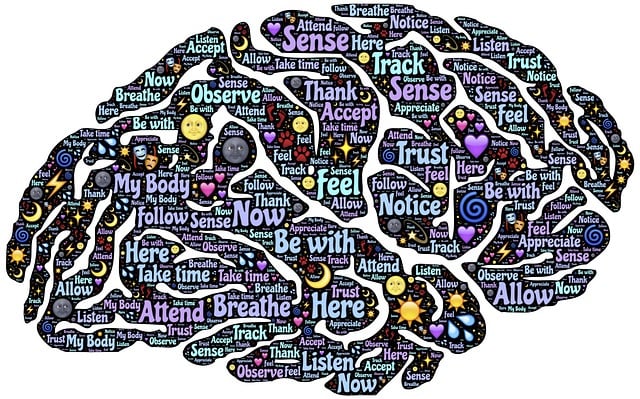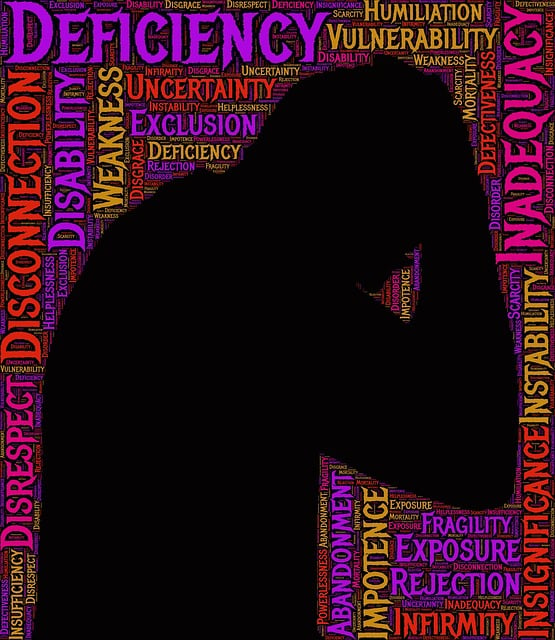Media representation of mental illness significantly impacts societal understanding, often reinforcing stereotypes that discourage help-seeking. Organizations like Wheat Ridge Trauma Therapy are challenging these misconceptions through evidence-based treatments and public education, aiming to promote accurate portrayals that reduce stigma. By featuring diverse characters with genuine experiences, collaborating with experts, and highlighting effective therapies, media can shape public awareness, encourage open conversations about mental wellness, and revolutionize support for those facing mental health struggles. This shift is vital for destigmatizing mental illness, offering practical stress management strategies, and fostering empathy within society.
Mental illness representation in media has long been a point of contention, with stereotypes and misconceptions prevalent. This article delves into this complex issue, exploring its impact on public perception and the importance of accurate depiction. We examine case studies like Wheat Ridge Trauma Therapy as models for responsible storytelling. Key strategies for improving media portrayals are discussed, emphasizing the role of awareness and empathy in fostering understanding. By promoting nuanced representations, we can challenge harmful stereotypes and create a more inclusive narrative around mental health.
- Understanding Mental Illness Representation in Media
- The Impact of Stereotypes and Misconceptions
- Wheat Ridge Trauma Therapy: A Case for Accurate Portrayal
- Strategies for Improving Media Depictions
- Fostering Awareness and Empathy Through Responsible Storytelling
Understanding Mental Illness Representation in Media

Media representation of mental illness plays a pivotal role in shaping societal perceptions and understanding. Unfortunately, stereotypes and inaccurate portrayals are still prevalent, contributing to stigma and misinformed opinions about various mental health conditions. This is where responsible media coverage becomes crucial, offering an opportunity to challenge these misconceptions and foster empathy. By presenting nuanced narratives, featuring diverse characters with genuine experiences, and collaborating with experts like those from Wheat Ridge Trauma Therapy, the media can significantly impact public awareness and support for individuals facing mental health struggles.
A well-rounded approach to mental illness representation involves exploring various conditions, demystifying symptoms, and highlighting effective treatment options and stress reduction methods. Moreover, it should address the challenges faced by mental health professionals, such as risk management planning, and promote resources like Mental Wellness Podcast Series Production, which can further educate and encourage open conversations about mental wellness. Through these efforts, media platforms have the potential to revolutionize how society perceives and supports individuals navigating their mental health journeys.
The Impact of Stereotypes and Misconceptions

The media’s portrayal of mental illness often perpetuates harmful stereotypes and misconceptions that can have a profound impact on society’s understanding of these conditions. When mental health issues are depicted in a simplistic or exaggerated manner, it creates a distorted view for viewers, leading to sympathy or fear instead of empathy and support. This misrepresented narrative can discourage individuals from seeking help, as they may fear judgment or believe their symptoms are beyond comprehension. For instance, showing intense and erratic behavior as the sole indicator of mental illness ignores the vast spectrum of experiences, including subtle yet debilitating symptoms that many face daily.
Challenging these stereotypes is crucial for fostering an environment where people feel comfortable discussing their struggles openly. Organizations like Wheat Ridge Trauma Therapy play a vital role in this mission by offering evidence-based treatments and promoting accurate representations of mental health. By educating the public through advocacy and policy analysis, such initiatives can lead to more effective stress reduction methods and anxiety relief. Ultimately, shifting societal perceptions is essential to ensuring that those dealing with mental illness receive the understanding and support they deserve.
Wheat Ridge Trauma Therapy: A Case for Accurate Portrayal

Wheat Ridge Trauma Therapy centers are a prime example of institutions dedicated to addressing the complex needs of individuals struggling with mental health challenges, particularly those related to trauma. These facilities play a crucial role in challenging the prevalent negative portrayals of mental illness in media by showcasing accurate and nuanced representations. By offering specialized treatments like Self-Awareness Exercises and comprehensive Trauma Support Services, Wheat Ridge Trauma Therapy demonstrates that healing is possible. Their work not only aids in destigmatizing mental health issues but also provides valuable insights into effective stress management strategies for those affected by trauma.
The media has long been accused of perpetuating stereotypes and misconceptions about mental illness, often reducing complex conditions to simplistic narratives. In contrast, Wheat Ridge Trauma Therapy offers a more realistic portrayal, highlighting the diverse experiences of individuals in recovery. Through their efforts, they contribute to a broader understanding of mental health, emphasizing that healing is a personal journey and one that can be facilitated by specialized support. This accurate depiction is essential for fostering empathy and encouraging those facing similar challenges to seek help.
Strategies for Improving Media Depictions

Media has a significant impact on shaping societal perceptions, including those related to mental health. To challenge negative representations and improve public understanding, several strategies can be adopted. One effective approach is to involve individuals with lived experiences of mental illness in the creation process. Their unique perspectives can ensure more authentic and nuanced storytelling. Additionally, media outlets can collaborate with mental health professionals like those at Wheat Ridge Trauma Therapy to consult on accurate portrayals, especially when depicting specific disorders or therapeutic techniques.
Public Awareness Campaigns Development centered around mental health can also play a pivotal role. By showcasing recovery stories and promoting open dialogues, these campaigns can humanize mental illness and inspire hope. Encouraging the portrayal of complex characters with well-rounded personalities, rather than stereotypes, is another step forward. Moreover, focusing on inner strength development and mood management strategies within media narratives can help normalize discussions around mental wellness, ultimately fostering a more compassionate and informed society.
Fostering Awareness and Empathy Through Responsible Storytelling

Media has a significant influence on shaping societal perceptions, especially regarding mental health. Responsible storytelling can play a pivotal role in fostering awareness and empathy for individuals dealing with various mental illnesses. By presenting authentic narratives, media can challenge stereotypes and offer a more nuanced understanding of these conditions. This approach encourages viewers to develop empathy, breaking down barriers and promoting acceptance.
Wheat Ridge Trauma Therapy, among other organizations, advocates for accurate representation. They emphasize the importance of storytelling that goes beyond simplistic tropes. Incorporating characters with complex backstories and realistic struggles can help viewers connect on a deeper level. Moreover, showcasing recovery journeys and the effectiveness of treatments like social skills training and stress management workshops can inspire hope and encourage support for those in need.
Media plays a pivotal role in shaping public perception, and accurate representation of mental illness is crucial. By challenging stereotypes and misconceptions through responsible storytelling, we can foster empathy and understanding. Wheat Ridge Trauma Therapy serves as an exemplary case for portraying mental health issues authentically. Implementing strategies to enhance media depictions not only combats stigma but also encourages support systems for those facing mental health challenges. It’s time to revolutionize how mental illness is represented, ensuring a more compassionate and informed society.














